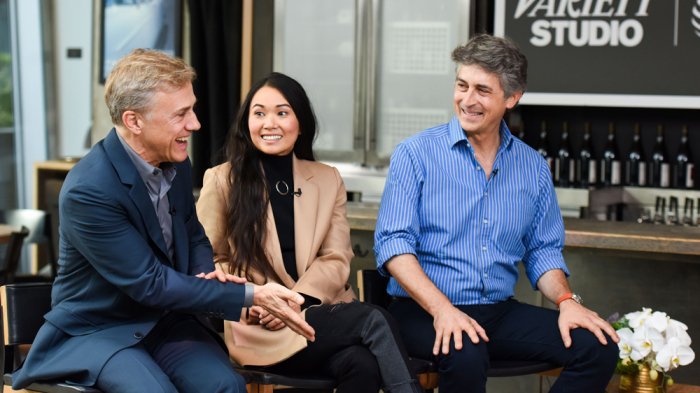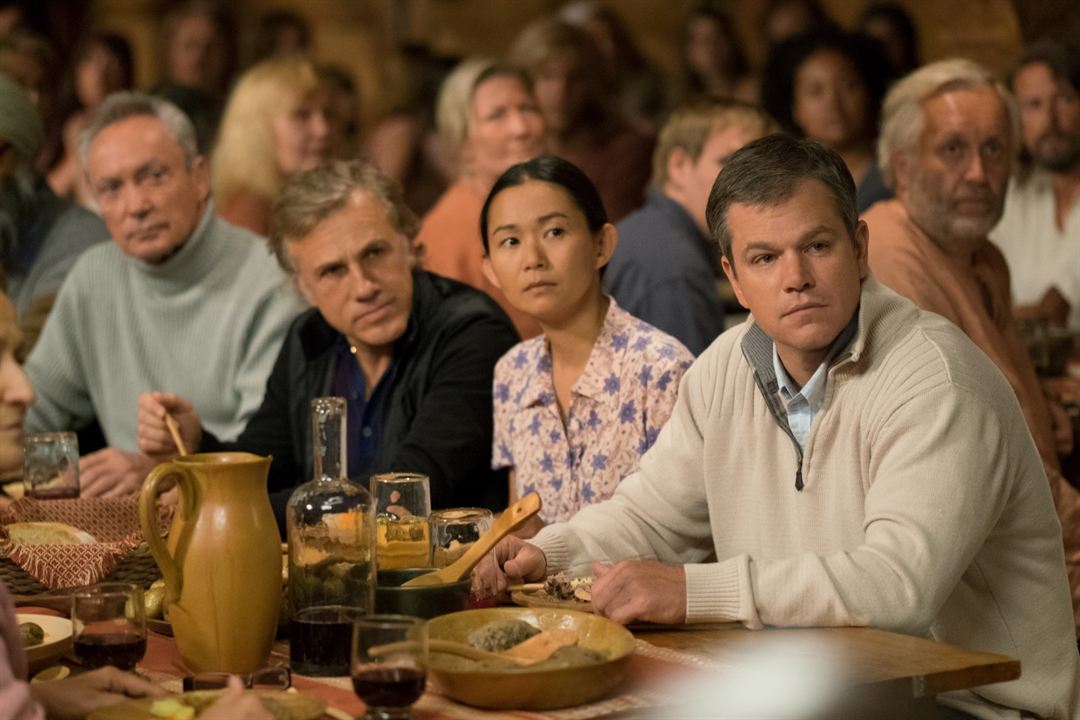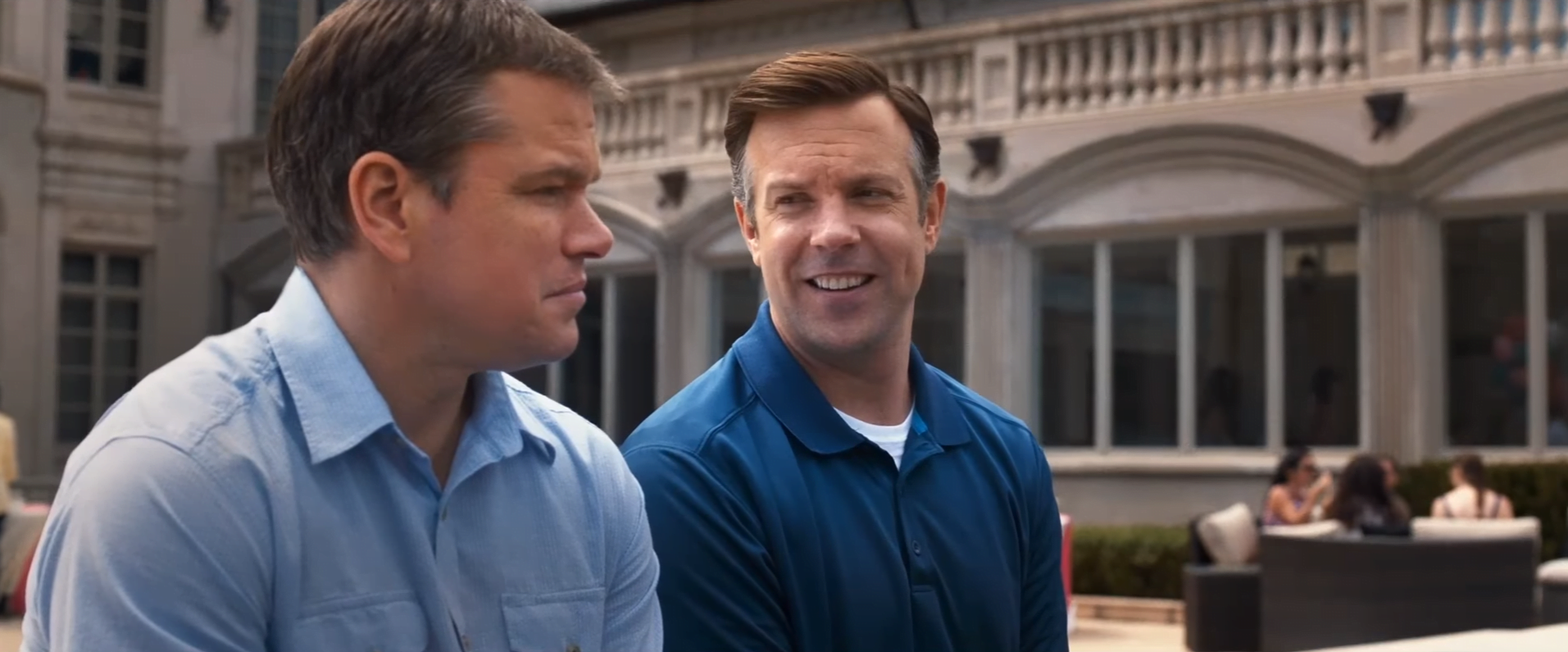On the occasion of the release of his new film, Downsizing, Alexander Payne came to answer several questions at the end of the screening. A very nice meeting between the American director and a curious and cheerful audience. Just Focus tells you everything!

Q: Downsizing is a long-term project that you have been developing for 10 years. We feel that you are passionate about it. What prompted you to consider this solution to overpopulation, to climate change? Why do you think the film stayed in your mind for so long?
A: I am exhausted from projects done with passion. It took me eleven years to make this film, from conception to execution. And that doesn't necessarily mean that the result is better than a film I spent just a year on. My co-writer, Jim Taylor, has a bit of a brother, Doug. And Doug gave us this idea that being small would allow us to do a lot of things. And we enriched the idea by bringing a conflict between big and small. At first, I thought it was a bit crazy. In 2006, I was on a plane when I thought about the idea again. To its application in reality.
Q: Have you consulted any scientists?
A: We invented most of the concept. On the other hand, we spoke with biologists about the consequences of extreme shrinkage of the human body.
Q: What were the artistic and technical challenges in this film?
A: This is my first film that is mainly based on visual effects. The lesson of this experience is that it is not difficult. Just extremely time-consuming. As a director, you need to hire a very good visual effects supervisor. I said to James, James E. Price), "helps me understand the process little by little, and make me believe that I am making a real film". Acting performance is what visual effects films suffer from the most for my taste. And I couldn't allow that in my film. There are 750 visual effects shots in Downsizing (editor's note: a 130' film includes an average of 1,600). And most of them have been developed with respect for the actors. The result seems trivial. I wanted this film to look like it was shot in the 80s. Unlike many visual effects films, my shots are longer and therefore more challenging.
Q: The hardest part was making humans smaller, or making the world bigger?
A: That's a great question. I think the real question you're asking is how I manage to be so beautiful. laugh. How come my fiftieth century skin looks so dashing? Do I apply lotions or do I wash my face before going to sleep? More seriously, physically or via visual effects? The visual effects supervisor, the cinematographer and I have debated for a very long time about the use of small cameras or large cameras. How to film small people? Until the moment when Matt Damon is downsized we film the characters as if small people existed. But we only had full-sized cameras. If you want to shoot a small person in close-up, you can either use a long focal length (which restricts your depth of field and the sharpness of the background), or a short focal length you get closer and your field of view is much wider. The film makes a transition in the shot where we discover Jamaican and Trinidadian maieuticians waiting for the arrival of the downsized. You suddenly see a huge midwife appear and you realize that you were already filming small people. The effect is also enhanced by an optical transition where we claim that small cameras exist in the world of the little ones. Until the end of the film, the grown-ups are filmed with small cameras.
Q: Have you given specific instructions to your decorator for the downsizing room?
A: I told him I wanted it to look like a microwave. It's not shot on a green screen. This is the work of the decoration team, built almost totally. And when their teeth were removed, we were in a dental school in Toronto.
Q: What did you want to explore in this film?
A: Silence. Alexander Payne looks at the reporter's notes. What else do you have? Explore, should I take this word literally? Downsizing does not deal with exploration. After Sideways, I was in a hurry to do something more ambitious than my previous films. Always with this political consciousness that existed in my first two feature films, Citizen Ruth and Election.

Q: The tone of the film is a cocktail of seriousness, fun and humor. How did you manage to balance, from the writing, this mixture of tones that is really your trademark as a director?
A: : (in French: "the style is me"). Laughter. I've often been asked this question, how to keep the balance between humor and drama. And I don't know how, I won't be able to describe it. It comes like this. Writing is a long process. Six years passed between Sideways and The Descendants. And I wanted Downsizing to follow Sideways but the script was taking way too long! And it became impossible to finance it. The writing work is instinctive. For Jim and me, humor comes from starting from an absurd premise and treating it in a totally serious way.
Q: Would you say this film is a love story?
A: It evolves into a love story. Totally improbable. It has its roots in the beginning of the film with the two adventures that Matt has. His wife, and the stupid dates that follow a divorce. And finally, the third is the right one while he did not expect it. We were even surprised with Jim while writing the story. It came like that. Sideways was the first love story I wrote.
Q: Tell us about Hong Chau. What prompted you to cast it?
A: Why her rather than a star? The casting gods sent Hong Chau to me. The real star of the film is Vietnamese, born in Thailand to refugee parents, then emigrated to Louisiana when she was little. Where there is a shrimp industry like in Vietnam. Her parents owned grocery stores and she went to film school. She is the only person in her family who went to university. She prefers movies more than acting. At school, she acted in school movies and her classmates convinced her that she would become a great actress. After college, she went to New York to take acting classes. I noticed it in Paul Thomas Anderson's Inherent Vice in 2014. She has a small role but her portrayal of the prostitute is a memorable one. She also starred in American TV shows that I haven't seen.
Q: I am Vietnamese and I find the character of Hong Chau very believable. Was he advised by Vietnamese?
A: She did everything herself. Vietnamese is his mother tongue. She later confessed to me that she wanted to pay tribute to her parents in the way she played. She respects the rhythm of the comedy, the pathos of the dialogues while referring to her parents who speak like her character.
Q: She steals the show completely, so does Christoph Waltz…
A: That's clear! It's a movie about Matt Damon but as soon as you see it for the first time, suddenly you're like, "Matt who?" My wife is here with us. When she saw the first versions of the film she told me that the audience would love Christoph and that if I could add footage with him, I absolutely had to do it.
Q: Do you think of any particular actresses or actors when writing contemporary or recent?
A: For the character of Matt Damon, I thought of Paul Giamatti and Jack Lemmon. For the role of Christoph Waltz, I had a Syrian friend in mind. Hong Chau could have been played by Gong Li. It doesn't happen to me automatically. When you're facing an obstacle, I find it helps a lot if you think of actors or people you know well, even if they've passed away.
Q: Which scene brought you the most satisfaction?
A: The shot where Ngoc Lan says, "Yes, I will go to Norway with you." By the time the film was released, I had seen it more than a thousand times. I told myself that I would never want to see Downsizing again in my life. This shot captures Hong's performance and the camera gradually moves closer to her. She did it in one take. Every time I see this shot I thank the gods for telling me that if the rest of the film is successful enough to carry this moment, that's enough for me. You get excited when you witness these kinds of shots and interpretations. It reflects the organization inherent in the plan, the planning of the script, the cast and the actors – which was planned for a long time – and when that moment comes along, completely spontaneous, you feel that it is happening for the first time. I had dinner last month with the great Ken Loach and he was talking to me about the excitement that cinema provokes as opposed to theatre. We capture interpretations of actors, professional or not, but to witness real human reactions, to hear someone, to respond to him, to interact with it, all this becomes very complex to grasp in the best way for eternity. Because as soon as the performance is captured, there is no reverse. Ken Loach finds it more difficult when working on fiction that involves rehearsals or planning. It's easier when you're not repeating. I have a lot of respect for Mr. Loach. However it is possible in fiction if you have a concrete actor and if you succeed in the first takes. And especially if the director does not intervene too much. Do all directors have to coach actors? Not. The director must choose the right actor. The old cliché is true: "95% of actor direction goes through casting". And for this film, the gods sent me the perfect actress that is Hong Chau. For this take, I didn't tell him anything beforehand. I will never be able to do that, with the lights, the camera, be so spontaneous and authentic.

Q: Is Downsizing the closest film to Robert Altman's style that you admire?
A: This one was pretty original. We found it new from the writing. We can compare its structure to Fellini's first films, proportionately and humbly, which follow a character through a series of episodes and make us lose a little thread of the origin of the episodes. The Nights of Cabiria, or 8 1/2. I draw my inspiration from his cinema. Many directors, including myself, are tired of this seemingly necessary three-act structure. Fellini teaches us the opposite, as does Scorsese. They reason in sequence rather. It's called life, quite simply.
Q: In the end, you never left Omaha. Even through this international cast and new landscapes, it all starts in Omaha.
A: Yes…. Yes indeed. I agree that the film starts small and grows as it goes. It was important for me to root it in a familiar place that I understood and that's why it was shot in Omaha, Nebraska. I don't want all my films to be like that, but there's this connection between Downsizing and my previous six.
Q: At the beginning of the film, Matt Damon talks with his mother who tells him that she is suffering. He tells her that everyone suffers in a different way. Is this line of dialogue a metaphor for the film?
A: Thank you for telling me about this tender moment in the film. I can't explain it. It seemed normal for Jim and me to write it. It was especially important for us to show that the character is aware of the pain of others. Although it appears very passive in the film, it does not have this internal engine. This can pass for a flaw in the scenario because the heroes are supposed to have a will and a goal, obstacles that they overcome to achieve this goal. Or not. Paul Safranek's motivations are quieter and more subtle. But the public knows that he takes into account the pain of others and we see him helping his mother, his wife, at work. He gets lost in the consumerist materialistic world and this completely hysterical Vietnamese woman grabs him by the shoulder and helps him refocus on himself. This line you are talking about is not the central theme of the film but it shows his early awareness of pain. Thank you again for pointing that out.
Q: There is one thing in common in your films: the presence of a social or physical death of your characters. But in different contexts or places. How do you manage to reinvent yourself?
A: My God! How am I going to deal with this question? (laughs) It is in a way the awareness of death that triggers personal reflections that themselves generate action. The success of this action is something else. It's an old cliché but I find it true: if you know you're going to die tomorrow, what changes are you going to make in your behavior? In truth, we will all die tomorrow, it can be the day after today or in 2 years.

Q: Downsizing is about ecology and the survival of the human species. Did you want the film to be pessimistic or bring a glimmer of hope on this very, very urgent subject?
A: Downsizing is neither pessimistic nor optimistic. Simply realistic. Our planet is in great danger and it may already be too late. We still have between 200 and 800 years ahead of us. Who knows? In almost every aspect, the world is not turning in the right direction. The avowed purpose of downsizing is of course personal pecuniary enrichment. Dusan (Christoph Waltz) says it in the film: "Altruism seeks selfishness". The only way for people to do moral things is through the satisfaction, in some way, of their self-interest.
Q: Referring to the end of the film, do you think saving the human species is important?
A: Laughter. It's an honest question. Be quiet. Obviously! It is the character of the Scandinavian scientist who says it. Man is too beautiful, not always, but it can be, that it is unlikely that another form of life like his can destroy itself and disappear forever. We know we are not alone. Who can know if there is someone else in space? These things are so far away from us. Elephants, for example, are worth saving and we are losing them.
Q: You know Paris well. You filmed a segment of "Paris, je t'aime" in the XIVth arrondissement. There is an international cast in Downsizing so why not include icons from our country? Why not downsize Catherine Deneuve or Gérard Depardieu?
A: Laughter. It would have been difficult to downsize Depardieu. Laughter. I really like Marion Cotillard. I would love to work with her. My opinion is not unanimous in this room but I think he is a real star. The tastes and colors… I like it very much.
Q: Marion Cotillard is very involved in ecology. You say Downsizing is a comedy but it's about serious and urgent things. How militant are you in your life?
A: I'm not. Of course I feel concerned by the subject but the environmental aspect of the film was only an entry point. We had this basic idea of having small people but how to transpose it into reality? And we thought of this crazy but sane Scandinavian scientist who would dream of this panacea to fight climate change. Environmental protection and nuclear weapons are the two major problems of today. I am not an activist but it is terrible that the defence of the environment can be politicized to such an extent. It's just the stupidest, stupidest thing I've ever heard. The film, however, has some political elements in its mind. But Downsizing shows a kind awareness of these emergencies.
Q: Since its presentation at the Venice Film Festival, audiences have called it a science fiction comedy or political satire. Others speak of a social parable. How would you define it?
A: A movie. I don't do comedies or dramas. It's the truth. It is not up to me to put a label on it. All my productions, even The Descendants, are comedies. Others will say it's a comedy but in the end it's not so funny, that it's more of a comedy drama. OK. In truth, I don't care. I like movies that charm me and I also like funny movies. I see a lot of contemporary films and I'm sad that there aren't more jokes.
Q: Ten years to make Mr. Schmidt, eleven for Downsizing. As we speak, is there a project that we will have the opportunity to see in several years?
A: I don't know what my next film will be. But one day, for sure, I'll make a western!





































